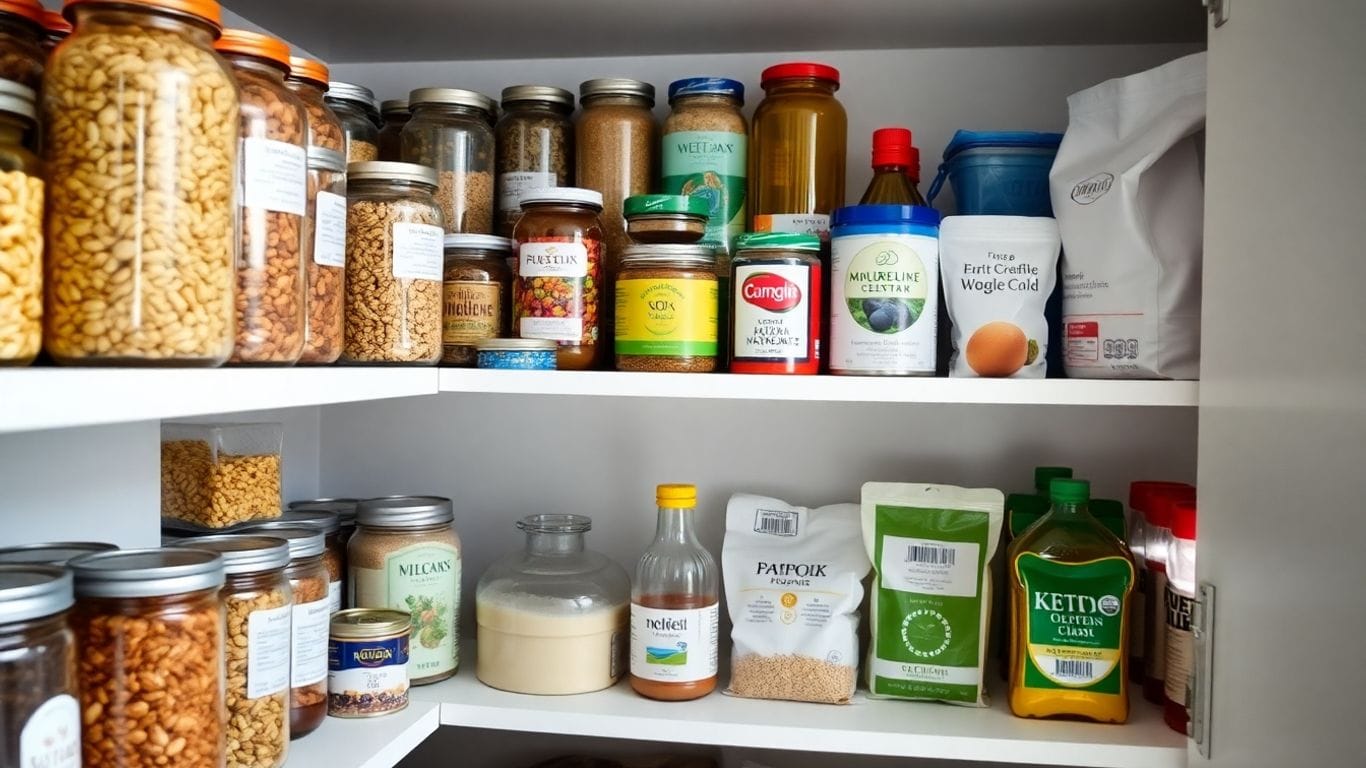Thinking about diabetes and how diet plays a role? You’ve probably heard a lot about low-carb eating, and maybe even keto, as ways to manage or even reverse type 2 diabetes. It’s a hot topic, and for good reason. Many people are looking for answers beyond just medication. This article breaks down what the science says about low-carb diets for diabetes, looking at the good, the challenges, and what you should know. We’ll explore how cutting carbs might help control blood sugar, the evidence behind these approaches, and what a low-carb diet actually looks like. Plus, we’ll touch on benefits beyond just sugar levels and what role doctors play in all of this. Let’s get into it.
Key Takeaways
- A low-carb diet, including keto, shows promise in helping people with type 2 diabetes control blood sugar levels and potentially achieve remission, meaning blood sugar returns to normal without medication.
- Studies suggest that a low-carb approach can lead to significant weight loss, improved cardiovascular markers like blood pressure and cholesterol, and even better pancreatic beta-cell function.
- While many studies show positive results, some experts point out the need for controlled trials to compare low-carb diets directly against other eating plans and to monitor for side effects like hypoglycemia.
- Adherence to a low-carb diet long-term can be a challenge, and it’s important to focus on the quality of foods consumed, favoring plant-based low-carb options over animal-based ones for better diabetes risk.
- Working with healthcare professionals is vital for managing diabetes with a low-carb diet, ensuring proper monitoring, and integrating dietary changes safely into an overall treatment plan.
Understanding Low Carb and Diabetes Remission
When we talk about diabetes, especially type 2, the word ‘remission’ can sound like a miracle. But what does it really mean, and can a low-carb diet actually help get us there? Basically, diabetes remission means your blood sugar levels return to a healthy range, so much so that you don’t need diabetes medications anymore. It’s not a cure, but it’s a huge step towards managing the condition much better, or even putting it on the back burner. The idea is to get your body working more efficiently without the constant need for drugs.
The Potential for Diabetes Remission Through Diet
For a long time, the common advice for managing type 2 diabetes involved a low-fat diet. However, recent research is really shining a light on how dietary changes, particularly cutting back on carbs, can make a big difference. Studies are showing that by reducing the amount of carbohydrates we eat, we can significantly improve blood glucose control. Some people are even seeing their type 2 diabetes go into remission. This means their bodies start responding better to insulin, and their blood sugar levels drop to a point where medication isn’t needed. It’s pretty exciting stuff, and it suggests that diet isn’t just a way to manage symptoms, but potentially a way to reverse some of the effects of the disease.
Low Carb Diet’s Impact on Glycemic Control
So, how does eating fewer carbs help with blood sugar? When you eat carbohydrates, your body breaks them down into glucose, which then enters your bloodstream. If you eat a lot of carbs, especially refined ones, your blood sugar can spike. For people with type 2 diabetes, their bodies either don’t produce enough insulin or can’t use insulin effectively, leading to high blood sugar. A low-carb diet directly tackles this by reducing the amount of glucose entering the bloodstream in the first place. This means less work for your pancreas and a more stable blood sugar level throughout the day. Think of it like turning down the tap that’s flooding your system with sugar. It’s a pretty direct way to get things under control.
Achieving Remission with a Low Carb Approach
Getting into remission with a low-carb diet often involves a structured approach. It’s not just about cutting out bread and pasta; it’s about making thoughtful food choices. Many people find success by focusing on whole, unprocessed foods. This typically includes plenty of non-starchy vegetables, healthy fats, and moderate amounts of protein. Some studies have shown really promising results, with a good percentage of people achieving remission, especially if they adopt the diet relatively soon after their diagnosis. The key seems to be consistency and finding a way to stick with the eating plan long-term. It can be a bit of a learning curve, figuring out what works best for your body and lifestyle, but the potential payoff is huge.
Here’s a look at some general guidelines that often come up:
- Focus on non-starchy vegetables: Think leafy greens, broccoli, cauliflower, bell peppers, and zucchini.
- Include healthy fats: Avocado, olive oil, nuts, and seeds are good choices.
- Choose quality protein sources: Fish, poultry, eggs, and lean meats fit well.
- Limit processed foods and added sugars: These are usually high in carbs and offer little nutritional value.
It’s important to remember that while a low-carb diet shows promise for diabetes remission, it’s not a one-size-fits-all solution. Individual responses can vary, and working with a healthcare provider is always recommended to ensure it’s the right approach for you and to monitor your progress safely.
Evidence Supporting Low Carb for Diabetes Management
So, does the science back up the claims that low-carb diets can help manage type 2 diabetes? The short answer is: yes, there’s a growing body of evidence. It’s not just anecdotal; researchers have been looking into this for a while now.
Clinical Study Findings on Low Carb Diets
Several studies have shown promising results. For instance, one clinic in the UK followed 186 patients with type 2 diabetes who chose to go low-carb. Over about three years, they saw some pretty significant changes. On average, patients lost around 22 pounds. More importantly, nearly all of them saw their HbA1c levels drop, which is a key indicator of blood sugar control. Many also saw improvements in blood pressure and cholesterol levels. The study found that over half of the participants achieved diabetes remission. This remission was more likely in those who had been diagnosed more recently and who lost more weight.
Meta-Analysis of Low Carb Diet Efficacy
When you look at multiple studies together, you get a bigger picture. A big review that combined data from 23 different trials, involving over 1300 people, looked at low-carb diets for type 2 diabetes remission. What they found was that people sticking to a low-carb plan for at least six months had higher rates of remission compared to those on other diets. This suggests that, for many, a low-carb approach can be a really effective tool. It’s important to note that what exactly counts as ‘remission’ is still something doctors discuss, but the trend is clear.
Expert Opinions on Dietary Interventions
Even major health organizations are starting to acknowledge the role of low-carb eating. While they often emphasize that there’s no single ‘best’ diet for everyone and that individual needs matter, they do recognize that carbohydrate intake significantly impacts blood glucose. Some experts suggest that reducing carbs can be a primary strategy for managing type 2 diabetes and prediabetes. They point out that many Americans consume a lot of calories from refined carbs and added sugars, which can be problematic. The American Diabetes Association, for example, now includes low-carbohydrate eating as a recognized option for patients with type 2 diabetes and prediabetes, advising that the best macronutrient mix depends on the individual’s preferences and health goals. This shift in perspective from major bodies is a big deal for diabetes management.
The impact of diet on blood sugar is undeniable. While different approaches exist, restricting carbohydrate intake has shown a consistent ability to improve key health markers for individuals with type 2 diabetes. This includes not just glucose levels but also weight and cardiovascular risk factors, making it a compelling option for many.
Key Components of a Low Carb Diabetes Diet
So, you’re thinking about a low-carb diet for diabetes management? That’s a big step, and it’s smart to know what you’re getting into. It’s not just about cutting out bread and pasta; it’s about making thoughtful choices that work for your body. The goal is to find a sustainable way of eating that helps control blood sugar without leaving you feeling deprived or missing out on important nutrients.
Foods to Limit on a Low Carb Plan
When you’re aiming for lower carbohydrate intake, certain foods are going to be off the table, or at least significantly reduced. Think of the usual suspects: sugary drinks like soda and fruit juices, sweets, cakes, cookies, and pastries. Refined grains are also a big one – white bread, white rice, and most breakfast cereals fall into this category. Even some fruits, like bananas and grapes, are higher in natural sugars and carbs, so you’ll want to be mindful of portion sizes. Processed snacks, chips, and crackers are usually loaded with carbs and often unhealthy fats, so they’re best avoided too.
Nutrient-Dense Foods to Emphasize
Now for the good stuff! Focusing on nutrient-dense foods is key to making a low-carb diet work long-term. This means filling your plate with non-starchy vegetables like leafy greens (spinach, kale), broccoli, cauliflower, bell peppers, and zucchini. These are packed with vitamins, minerals, and fiber, which are super important. Healthy fats are also a cornerstone – think avocados, olive oil, nuts, and seeds. For protein, lean meats, poultry, fish (especially fatty fish like salmon for omega-3s), and eggs are excellent choices. Some dairy, like full-fat yogurt and cheese, can also fit in, depending on your carb tolerance.
The Role of Quality in Low Carb Eating
It turns out, quality really does matter when you’re cutting carbs. Research suggests that the type of low-carb diet can make a difference. For instance, a low-carb diet that emphasizes plant-based foods, healthy fats, and lean proteins might be more beneficial for diabetes risk than one that relies heavily on animal fats and processed meats. So, instead of just swapping out carbs for more processed low-carb snacks, aim for whole, unprocessed foods. Choosing high-quality protein sources and healthy fats over refined options makes a big difference in overall health and how well your body responds.
When you’re cutting back on carbs, it’s easy to accidentally cut out important nutrients. That’s why focusing on whole, unprocessed foods is so important. Think of it as a quality upgrade for your diet, not just a quantity reduction. Making sure you’re getting enough fiber, vitamins, and minerals from your food will help you feel better and support your body’s overall health while you manage your diabetes.
Benefits Beyond Blood Sugar Control

While getting your blood sugar levels in check is the main goal when managing diabetes, a low-carb approach can offer some pretty significant perks that go way beyond just that. It’s not just about numbers on a meter; it’s about improving your overall health in ways you might not expect.
Weight Loss and Its Diabetes Implications
Many people find that cutting back on carbs naturally leads to shedding some extra pounds. This isn’t just about fitting into your old jeans, though. For those with type 2 diabetes, excess weight, especially around the belly, is a major player in insulin resistance. When you lose weight, particularly fat, your body becomes more sensitive to insulin. This means the insulin you produce (or take) works better, helping to lower blood sugar. It’s a positive feedback loop: losing weight helps control diabetes, and managing diabetes can make weight loss easier.
Improvements in Cardiovascular Markers
Diabetes and heart disease often go hand-in-hand, which is a scary thought. The good news is that a low-carb diet can positively impact several markers related to heart health. Studies have shown reductions in blood pressure and improvements in cholesterol profiles, like lowering triglycerides and increasing HDL (the ‘good’ cholesterol). These changes can contribute to a lower risk of heart problems down the line. It’s like giving your whole cardiovascular system a bit of a tune-up. You can find more information on how low-carbohydrate diets affect these markers in various studies.
Restoring Pancreatic Beta-Cell Function
Your pancreas has these little cells called beta-cells that make insulin. In type 2 diabetes, these cells can get overworked and eventually stop working as well. Some research suggests that by reducing the constant demand on these cells – which happens when you lower carb intake and thus lower blood sugar spikes – they might actually get a chance to recover. It’s not a guaranteed fix for everyone, but the idea that you could help your own body produce insulin more effectively is pretty compelling. This could mean a better long-term outlook for managing the condition.
The interconnectedness of diet, weight, and metabolic health is complex. When you reduce the burden of high carbohydrate intake, you’re not just affecting glucose levels. You’re potentially influencing fat storage, inflammation, and the overall stress on your endocrine system, including your pancreas. This holistic impact is why dietary changes can feel so profound.
Challenges and Considerations for Low Carb Diets

While the idea of a low-carb diet for diabetes management sounds promising, it’s not always a walk in the park. There are definitely some hurdles to jump over and things to think about before you dive in. It’s not just about cutting out bread and pasta; it’s a bigger lifestyle shift that needs careful planning.
Adherence and Long-Term Sustainability
Sticking to any diet long-term can be tough, and low-carb is no exception. Some people find it really hard to keep up, especially when faced with social situations or cravings. The Stanford study, for instance, found that while a ketogenic diet was effective, participants found it harder to stick with compared to a Mediterranean low-carb approach. This isn’t surprising when you consider how many common foods are high in carbs. Finding a low-carb plan that you can realistically follow for years is key to seeing lasting results. It’s about finding a balance that works for your life, not just for a few weeks.
Potential Nutrient Deficiencies
When you drastically cut out entire food groups, like carbohydrates, you run the risk of missing out on important nutrients. Many carb-rich foods, like whole grains and fruits, are packed with fiber, vitamins, and minerals. If you’re not careful about replacing these nutrients, you could end up with deficiencies. For example, ultra-low-carb diets can sometimes be lower in fiber, which is important for gut health and can help with blood sugar control. It’s important to focus on nutrient-dense foods to fill these gaps. Some research suggests that animal-based low-carb diets might be linked to a higher risk of Type 2 diabetes, while plant-based low-carb diets show a lower risk, highlighting the importance of food quality [6894].
Comparing Low Carb to Other Dietary Approaches
It’s easy to get caught up in the low-carb craze, but it’s worth remembering that it’s not the only game in town. Different people respond differently to various diets. Some studies suggest that the quality of your food matters more than just the quantity of carbs. For example, the American Diabetes Association doesn’t mandate a specific carb percentage, instead suggesting that the best macronutrient distribution is one that fits an individual’s preferences and goals. Other approaches, like a Mediterranean diet, also show benefits for blood sugar control and overall health. It’s a good idea to discuss with your doctor or a dietitian to see which approach aligns best with your specific health needs and lifestyle.
Here’s a quick look at some common considerations:
- Fiber Intake: Many low-carb diets can be low in fiber if not planned well. This can affect digestion and satiety.
- Micronutrient Variety: Cutting out fruits, whole grains, and legumes might reduce intake of certain vitamins and minerals.
- Sustainability: How easy is it to maintain this way of eating long-term?
- Individual Response: Not everyone reacts the same way to carb restriction.
Making a significant dietary change like going low-carb requires more than just willpower. It involves understanding your body’s needs, planning meals carefully, and being aware of potential pitfalls. It’s a journey that often benefits from professional guidance to ensure you’re meeting all your nutritional requirements while managing your diabetes effectively.
- Is Low Carb Healthy? Benefits, Risks, and Essential Precautions
- Does Low Carb Really Work? How Does the Diet Affect the Body?
- Low Carb vs. Keto: Differences, Benefits & Your Best Choice
The Role of Healthcare Professionals
When you’re thinking about making big changes to your diet, especially for something as serious as diabetes, having your doctor or a registered dietitian in your corner is a really big deal. They’re the ones who can help you figure out if a low-carb approach is even a good idea for you, based on your specific health situation. It’s not a one-size-fits-all thing, you know?
Physician Support for Dietary Therapy
Doctors play a key role in guiding patients toward effective dietary strategies. They can assess individual health markers, discuss potential risks and benefits of different eating patterns, and help set realistic goals. It’s vital that any significant dietary shift, like adopting a low-carb diet for diabetes management, is done under medical supervision. This ensures that the changes are safe and appropriate for your body. They can also help you understand how your medications might need to be adjusted as your body responds to the new way of eating. For instance, if your blood sugar levels start to drop significantly, your doctor might need to tweak your medication dosage to prevent hypoglycemia.
Monitoring and Patient-Physician Trust
Regular check-ins with your healthcare provider are super important. This isn’t just about getting your blood work done every few months. It’s about having an open conversation about how you’re feeling, what challenges you’re facing with the diet, and what successes you’re celebrating. Building trust means you feel comfortable sharing the nitty-gritty details, like whether you’re struggling with cravings or if you’ve noticed a real difference in your energy levels. This back-and-forth helps your doctor fine-tune your plan and catch any potential issues early on. Think of it like this:
- Discussing any new symptoms you experience.
- Reviewing your blood glucose logs together.
- Adjusting your meal plan based on your progress and feedback.
Integrating Diet into Diabetes Treatment Plans
Dietary changes, including a low-carb approach, shouldn’t be an afterthought; they need to be woven into the fabric of your overall diabetes management plan. This means your doctor and other healthcare professionals should actively discuss and incorporate dietary recommendations alongside medication, exercise, and regular monitoring. It’s about creating a holistic strategy. Sometimes, this might involve referrals to a registered dietitian who specializes in diabetes nutrition. They can provide detailed meal planning, recipe ideas, and practical tips for sticking to a low-carb lifestyle, making it more manageable for everyday life. Remember, the goal is to find a sustainable way of eating that helps you manage your diabetes effectively and improve your overall health. For more general advice on dietary approaches, you might find information on quality ingredients helpful.
So, What’s the Verdict on Low-Carb Diets for Diabetes?
It looks like cutting back on carbs could really make a difference for folks with type 2 diabetes. Studies show that many people who tried a low-carb approach saw their blood sugar levels get much better, and some even managed to get their diabetes into remission, meaning they could stop taking medication. This is pretty exciting stuff, especially for those who’ve had diabetes for a while. Of course, it’s not a magic bullet for everyone, and sticking to it long-term can be tough. Plus, some experts point out that we need more studies to compare low-carb diets directly with other eating plans. It’s also important to remember that diet is just one piece of the puzzle; other treatments and doctor’s advice are still super important. But if you’re looking for a way to take more control of your type 2 diabetes, a low-carb diet might just be a powerful tool to consider talking over with your doctor.
Frequently Asked Questions
Can a low-carb diet help reverse type 2 diabetes?
Some studies show that a low-carb diet can help people with type 2 diabetes achieve remission. This means their blood sugar levels return to a healthy range without needing medication. It’s more likely to work for people who have had diabetes for a shorter time.
What foods should I eat and avoid on a low-carb diet for diabetes?
You should limit foods high in sugar and starches, like bread, pasta, rice, and potatoes. Instead, focus on eating non-starchy vegetables, lean meats, fish, eggs, healthy fats, and some fruits.
Are there any risks or downsides to a low-carb diet for diabetes?
Some people might not get enough important nutrients if they don’t plan their diet carefully. It can also be hard to stick to long-term. It’s important to talk to a doctor to make sure you’re getting all the nutrients you need and to watch out for side effects like low blood sugar.
Does a low-carb diet help with weight loss in diabetes?
Yes, many people find that a low-carb diet helps them lose weight. Losing weight can greatly improve blood sugar control and may even help put type 2 diabetes into remission.
How does a low-carb diet affect the body’s ability to make insulin?
Some research suggests that a low-carb diet might help improve the function of beta-cells in the pancreas. These cells make insulin, so better function could mean your body can manage blood sugar more effectively.
Should I talk to my doctor before starting a low-carb diet for diabetes?
Absolutely! It’s crucial to discuss any major diet changes with your doctor. They can help you create a safe plan, monitor your progress, adjust medications if needed, and ensure the diet is right for your specific health situation.

Hey there 👋 I’m Danilo — a food enthusiast passionate about low carb cooking and healthy living.
I believe that eating well doesn’t have to be complicated — it just needs flavor, love, and real ingredients. 🍳
Here, I share easy, low carb recipes made for real life — simple, satisfying, and full of taste. Let’s make healthy food something you actually crave!





